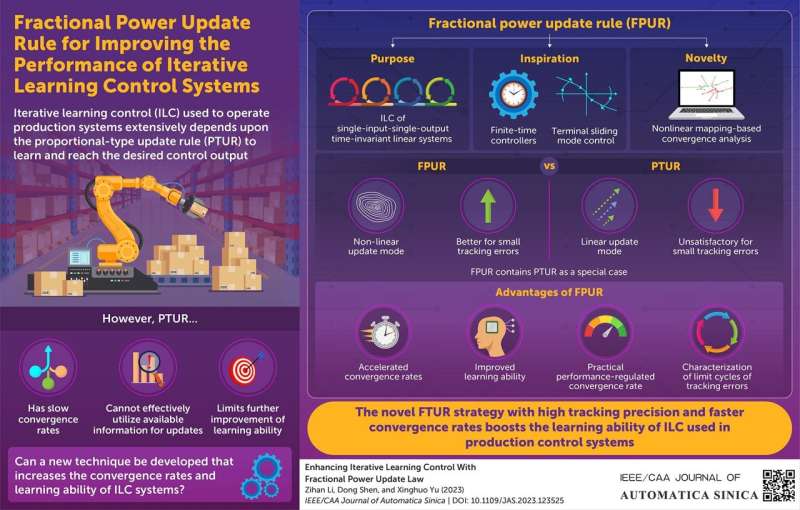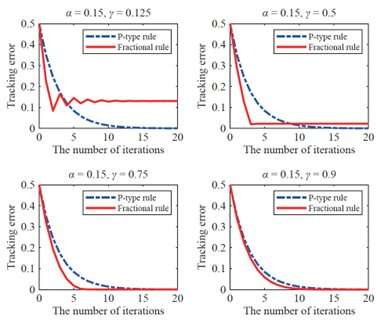This article has been reviewed according to Science X's editorial process and policies. Editors have highlighted the following attributes while ensuring the content's credibility:
fact-checked
proofread
A novel technique to improve the learning ability of robots that perform repetitive tasks

Learning from one's past mistakes is not limited to humans. Computers do it, too. In industries, this is done via computer-based control systems that help operate production systems. For industrial robots that perform specific tasks in batches, say producing clothing, computer chips, or baked goods, the most commonly used control technique is iterative learning control (ILC). Most industries still rely on ILC systems that use a learning strategy called the proportional-type update rule (PTUR). This technique improves the performance of ILC systems by repeating the same task over and over and updating its control input based on errors encountered in previous iterations.
However, this control methodology was proposed decades in the past. And since ILC systems are being increasingly adopted for performing more complex tasks, there is a need for techniques that can learn faster and with greater accuracy.
In a recent breakthrough, a group of scientists has proposed a new technique that uses the fractional power update rule (FPUR) to enhance the performance potential of single-input-single-output linear ILC systems. The study has been published in the IEEE/CAA Journal of Automatica Sinica.
Convergence rates—the rates at which the difference between the desired output and the actual output decreases over time—play a crucial role in defining the efficiency of an ILC system. Existing methods for improving convergence rate often turn out to be unsatisfactory in situations that require high precision. Even in the case of constant or manually selected learning gains, current ILC systems that use linear update method fail to exploit the available information to the fullest. Therefore, the scientists investigated approaches beyond PTUR, which utilized nonlinear update methods to learn and reach the desired output.

"Traditional PTUR uses a linear term for the tracking error to update the control input. On the other hand, FPUR uses a fractional term for updation. Since any positive number smaller than one has a larger fractional power than itself, the update intensity of FPUR is larger than that of PTUR for small tracking errors, leading to a faster convergence rate," explains Zihan Li, the lead author of the study and a master's student at the School of Mathematics at Renmin University of China.
The team developed a new FPUR method inspired by newer finite-time control (FTC) and terminal sliding mode control (TSMC) strategies, which are potential techniques for overcoming the previously mentioned issues and for improving convergence speed. The scientists also adopted a nonlinear mapping approach to explore the error dynamics over time. This approach allowed them to report fast convergence performance and characterize possible limit cycles of tracking errors in ILC systems. Furthermore, numerical simulations were also performed to validate the effectiveness of the new method.
When asked about how the proposed system would change the field of ILC systems, Li says, "This study serves three main purposes. First, it provides an algorithm that uses a nonlinear update method to improve the learning ability. Second, it shows that adapting fractional power terms allows the convergence rate to be regulated based on actual performance. And finally, it exhibits fast convergence rates on par with those of FTC and TMSC."
This study has demonstrated, for the first time, the use of the FPUR for ILC in single-input-single-output linear systems. The proposed technique could potentially be used in other repetitive systems such as autonomous vehicles, unmanned aerial vehicles, and rehabilitation robots.
More information: Zihan Li et al, Enhancing Iterative Learning Control With Fractional Power Update Law, IEEE/CAA Journal of Automatica Sinica (2023). DOI: 10.1109/JAS.2023.123525

















